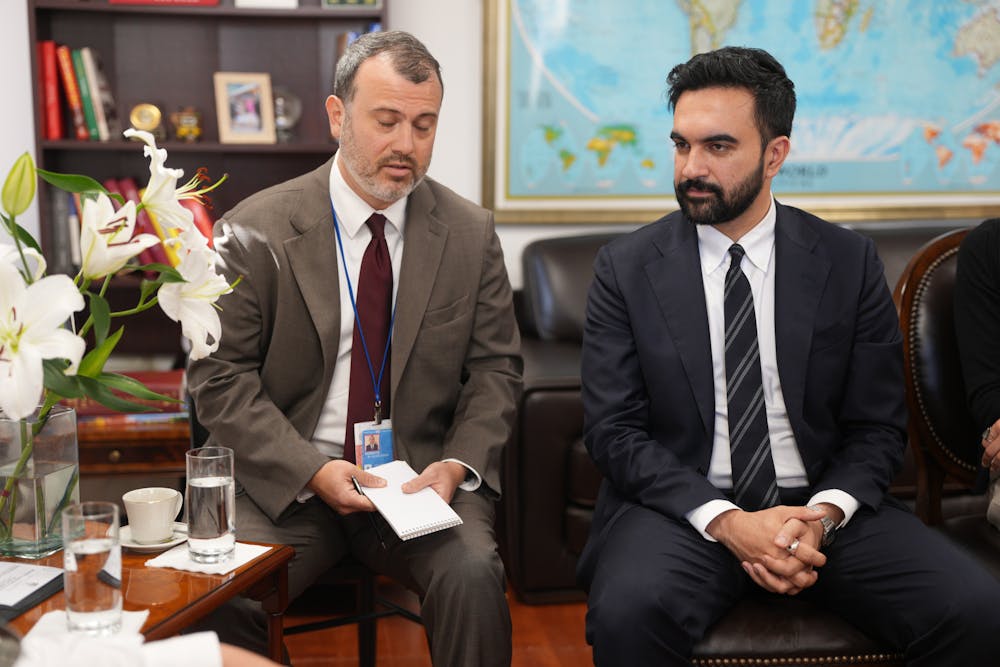By Isabel Conforme
Correspondent
In this most recent election season New York finally gained a new mayor, with Democratic candidate Zohran Mamdani winning the New York City mayoral race, taking office at 34-years-old and becoming the first Muslim to hold the position.
The election of New York City signals a historic shift in the city’s political landscape. His victory represents not only a generational change, but a political and cultural shift, and captures the renewed power of progressive and immigrant communities in city politics.
Mamdani was born in Uganda and later immigrated to the United States, where his upbringing and identity would later be powerful cornerstones of his public identity.
His Muslim faith is socially visible and an intentional position in his politics, distinguishing him in a field where religious identity is often minimized or sanitized for electability.
“My mom was crying the entire way to the voting station," said Dania Darwish to NPR, who described herself as a Syrian-American Brooklynite. Darwish explained how she felt deeply moved seeing a candidate who reflected her community and experiences.
Despite the historic achievement, Mamdani started with a very little marketing advantage. A year prior to the election, he had little name recognition, very little funding and no institutional support from the Democratic Party establishment.
He started his activist journey early, co-funding Bowdoin College’s campus chapter of Students for Justice in Palestine.
Mamdani stood out for the strategy and spirit of his campaign. His team produced TikTok and Instagram videos that allowed him to reach typically apolitical voters, especially younger demographics and new voters.
He also built an intentional multilingual campaign presence, speaking to community residents in Urdu, Hindi, Arabic and Spanish. This helped him form a broad and diverse coalition spanning immigrant families, Muslim communities and South Asian voters.
With regards to politics, Mamdani views himself as a democratic socialist, and his campaign for mayor was centered on issues such as affordability, public services and the health of the community.
According to his campaign website, his proposals include freezing rent, making buses fare-free, ensuring free childcare and creating citywide grocery stores to ensure the price of food remains affordable and stable.
He would finance his policies by raising the corporate tax rate to match New Jersey’s rate of 11.5% and increasing taxes on New York’s richest one percent.
His victory has already caused concern at the state level, with Governor Kathy Hochul reportedly soliciting a “virtual war room” with security and business leaders to prepare for the federal government intervening, according to Politico.
Jackie Bray, who oversees state homeland security and emergency services, summarized the approach by saying, “The goal is to prevent, and if we can’t prevent, then hopefully we can delay.”
His election marks a significant change in the city’s political landscape. The coming years will test how his administration approaches its proposed policies and whether these promises can bring lasting benefits to the New Yorkers.







